How EU sanctions fuel divisions in Eastern Europe Brussels contends with Orbán and Lukashenko
On August 5, the European Union expanded its blacklist for Belarusian individuals by adding 28 more names. At the same time, Members of the European Parliament are calling for Hungary to be removed from the Schengen Area due to Budapest's decision to ease visa regulations for Belarusian and Russian citizens.
The watchful eye of the European Parliament
Recently, the Hungarian government decided to simplify visa rules for eight countries, including Russia and Belarus. The reaction was swift. On July 30, Manfred Weber, president of the European People's Party (EPP), the Continent's main center-right political force sent a letter to Charles Michel, President of the European Council, criticizing this decision.
Weber argued that the relaxed visa issuance for Russians and Belarusians could facilitate the entry of "spies" into the EU. The expedited visa procedure in question was developed in Hungary as part of the National Card program for seasonal workers.
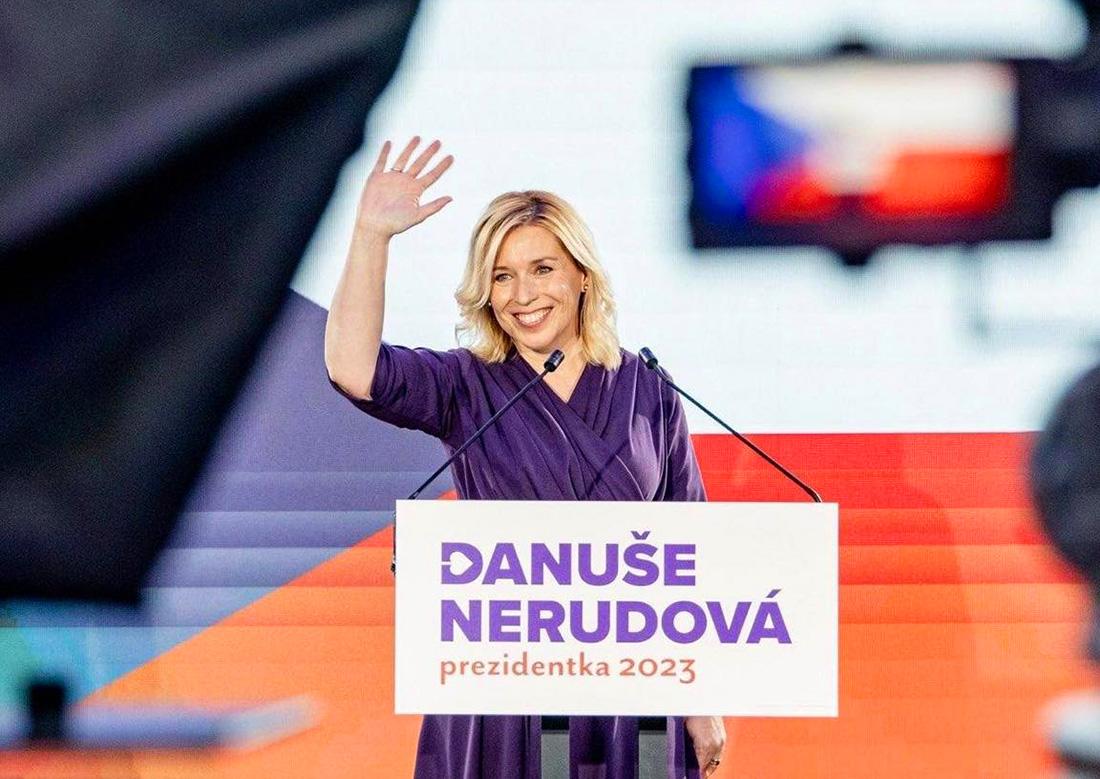
Soon after, Czech MEP Danuše Nerudová and Lithuanian MEP Petras Auštrevičius drafted a formal appeal to the European Commission. Concerned about the easing of regulations in the "European house," the legislators effectively demanded that Hungary be removed from the Schengen Area unless it reversed its decision. They also proposed reinstating border controls with Hungary and cancelling Hungarian visas, arguing that the visas issued to Belarusians and Russians pose a security threat to the EU. The letter was signed by an additional 70 people.
Danuše Nerudová, a former rector of Mendel University, is a member of the liberal political Mayors and Independents Party and has significant political ambitions. In 2023, she ran for president and finished in third place. Her campaign was marked by social populism and included several promises to "pursue active economic diplomacy" and "open doors for Czech companies in international markets." How these promises align with her current demands for border control with Hungary remains a rhetorical question.
Petras Auštrevičius is one of the founders of the Lithuanian Liberal Movement and was the chief negotiator for Lithuania’s accession to the EU. His interest in Belarus is both professional and personal—since 2019, he has been the European Parliament’s permanent rapporteur on Belarus.
Additionally, Auštrevičius has personal reasons for his stance, as he has been banned from entering Russia since 2015. He is an active public figure and a member of numerous NGOs and foundations. For instance, he is on the board of the European Endowment for Democracy (EED), which has faced accusations of connections with a transatlantic network of neoconservative and Islamophobic activists.
This Lithuanian MEP is highly engaged in various causes, including advocating for democracy in Cambodia and fighting for LGBTQ+ rights as part of the European Parliament's Intergroup on LGBT Rights.
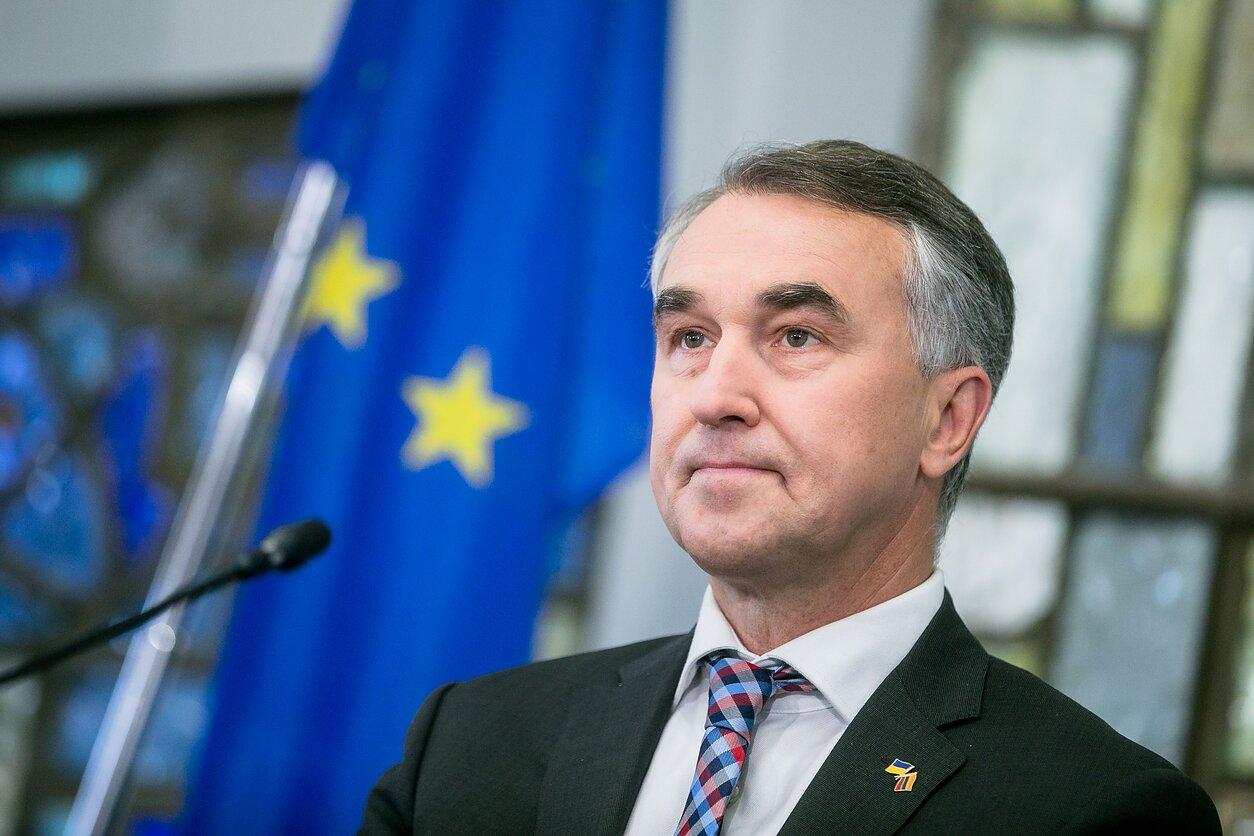
Despite all the sanctions and confrontations, citizens of the Russian Federation are not currently prohibited from entering the EU and the Schengen Area. Additionally, each EU member state can establish its own national rules for issuing work permits, with Hungary being no exception.
Hungarian "rebellion" for peace
Recently, Budapest has been the subject of intense criticism from Brussels as it unexpectedly pursues an independent policy, despite being an EU and NATO member state. Prime Minister Orban is not seeking confrontation for the sake of confrontation or abstract ideas. He is not aiming to break ties with the European Union or join, for example, Russia and Belarus or the Collective Security Treaty Organization (CSTO). The focus is on Hungary's pursuit of an independent policy, which cannot be labelled as "anti-European" or accused of Euroscepticism.
Since July 1, Hungary has held the presidency of the EU, with Viktor Orban proclaiming the slogan: "Let's make Europe great again." It is evident that in this formula, the Hungarian leader is clearly emulating Donald Trump.
What is the secret behind Orban's phenomenon? Here we can also consider the initially unique, "Eurasian" path of Hungary. Indeed, the Magyars once arrived in the Danubian Plain from the depths of Eurasia, absorbing representatives of many Turkic peoples as well as local Slavs. Throughout this time, they maintained their language and distinctive culture, quite different from their surroundings.
However, delving into historical excursions, even more answers can be found in Hungary's recent history. In the two world wars, this country was forced to fight for foreign, destructive interests detrimental to its people. Liberating itself from the Habsburg Empire, Hungary was once again involved by German Nazis and local extremists in a new world war.
All of this led to colossal losses of territory, people, and the heavy burden of other problems. Perhaps in this lies the roots of the special desire for sovereignty, the unwillingness to once again become a pawn in the hands of a new European empire?
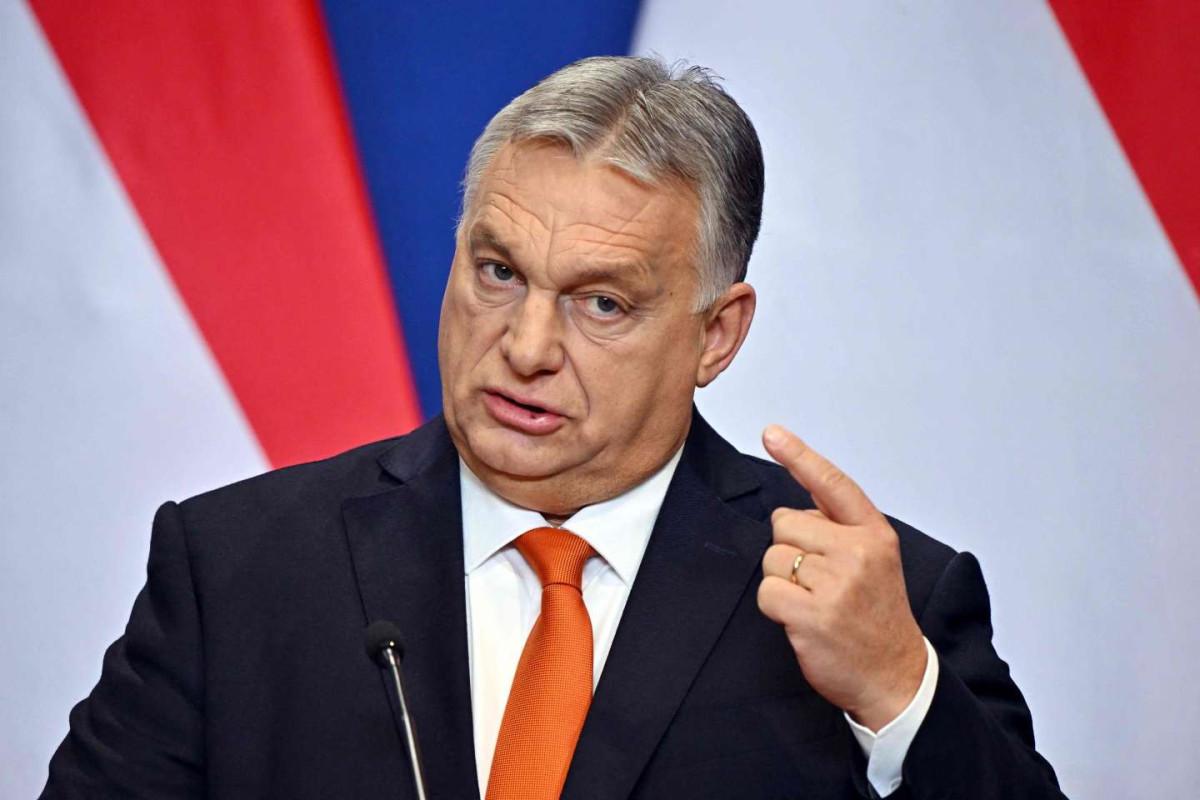
Today, above all, Hungarians are not happy about the war happening in Ukraine - their fellow countrymen from the Zakarpattia region are dying on the front lines. Orban has repeatedly warned that if the escalation continues, this conflict could escalate into a Third World War. The West is rapidly preparing for such a scenario. Just this peaceful position was enough to accuse the Hungarian Prime Minister of being "pro-Russian".
Despite Hungary fully recognizing Ukraine's territorial integrity, it advocates for a swift and fair peace. Orban's recent visits to Kyiv, Moscow, and Beijing, where he tried to initiate a ceasefire, have sparked a wave of dissatisfaction in EU ruling circles. The EU's High Representative for Foreign Affairs, Josep Borrell, criticized Orban, calling his actions a "lack of loyal cooperation". Calls to deprive Hungary of its presidency and voting rights in the EU have been loud.
Sanctions and repression
Regarding Belarus, this peaceful republic has already faced sanctions from the European Union twice this summer. Prior to this, the last sanctions imposed on Minsk was in August 2023. However, on June 29, 2024, a new set of sanctions was introduced, accusing Belarus of engaging in economic cooperation with Russia that allegedly helps Russia bypass restrictions imposed by the West.
Among other things, restrictions on the export of dual-use and high-tech goods to Belarus were expanded, as well as "goods that could contribute to the growth of Belarus' industrial potential."
It is clear that the goal of these sanctions is to inflict overall damage on Belarus' industry and economy, rather than specifically targeting certain segments integrated with the Russian military-industrial complex. Additionally, restrictions now apply to trailers and semi-trailers registered in Belarus, as well as to transport to the European Union, including transit, even by EU companies if 25 per cent or more of their shares are owned by Belarusians.
The specific implementation of these new restrictions came on July 9, when Poland, Lithuania, and Latvia announced limitations on the entry of Belarusian vehicles into their territories. By mid-July, Lithuania and Latvia had indeed enforced this ban.
However, Warsaw took a more rational approach, and subsequently, Poland's Deputy Foreign Minister Andrzej Scheyna stated: "We will not ban the entry of Belarusians’ personal cars, although we could do it. The use of Poland's existing tools, such as border closures and restrictions on freight traffic, would have painful consequences for its economy. Warsaw is observing signals from Minsk about the intention to engage in dialogue, and positive trends have been noted at the border between the two countries in terms of reducing the flow of illegal migrants."
If someone in the West occasionally starts showing common sense, the policy towards Belarus is still being determined by "hawks" and other predators. On August 5 in Brussels, 28 new individuals were added to the sanctions list. Now included are two deputy heads of the Main Directorate for Combating Organized Crime and Corruption of the Ministry of Internal Affairs of Belarus (GUBOPiK), prosecutors, judges, heads of correctional colonies, and investigative isolators. They are all accused of involvement in repression against the pro-Western opposition, which organized mass protests during the presidential election in August 2020.
The second group placed on the "blacklist" is media-related. This includes editors of state publications and journalists who are accused of "benefiting from the regime." Among them are the Director General of the Belarusian BelTA news agency, Irina Akulovich; the host of the TV program “Senate” on the STV channel and chairman of the Youth Parliament at the National Assembly of Belarus, Nikita Rachilovsky; former head of Lukashenko's press service and long-time CEO of BelTA Dmitri Zhuk and others.
Sanctions against Zhuk were actually imposed back in 2011, and lifted in 2016, but in 2020 he was banned from entering Lithuania, Latvia, and Estonia, and now he has once again fallen under full-scale sanctions. Inclusion in the European Council's "blacklist" entails freezing assets and prohibiting EU citizens and companies from providing funds to them. Those under sanctions are also prohibited from entering or transiting through EU territory. Currently, there are 261 individuals and 37 organizations in Belarus under EU sanctions.
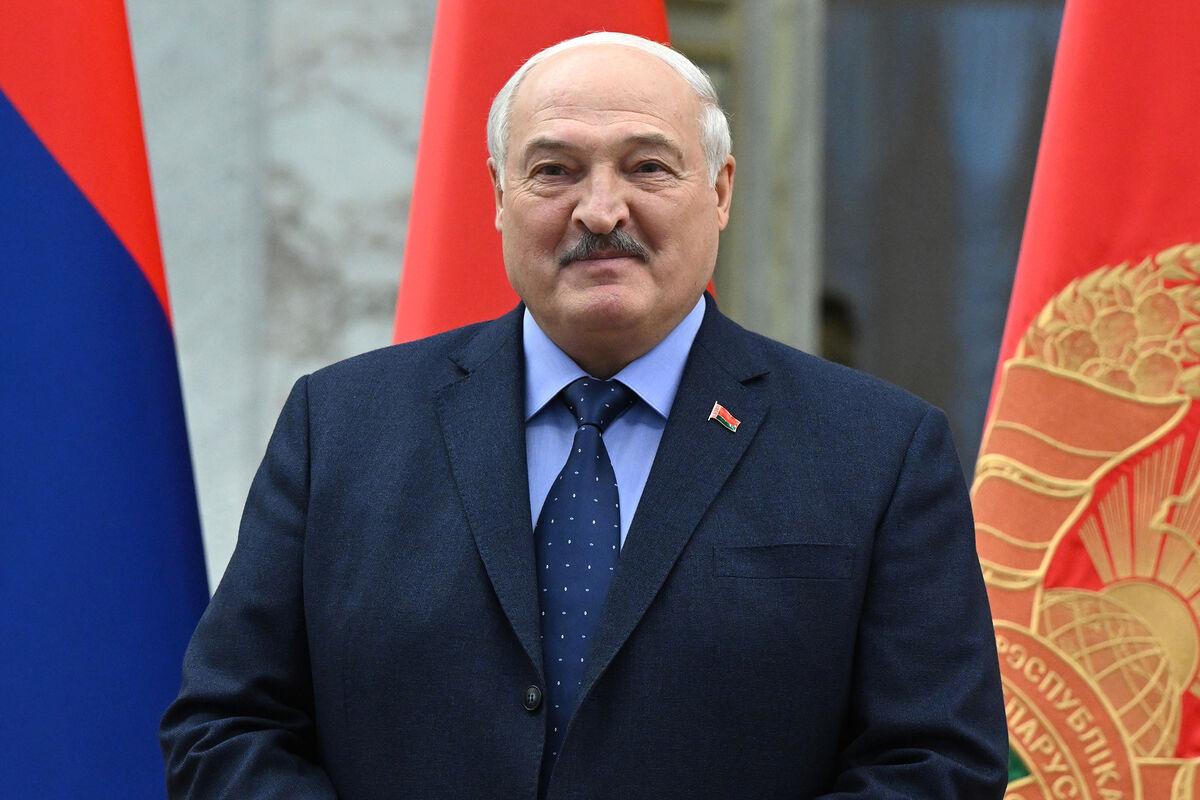
The list includes members of Aleksandr Lukashenko's family who have no connection to politics or business, political analysts, military personnel including senior Air Force commanders, MPs, directors of state enterprises, businessmen, athletes, university rectors, precinct officers, rank-and-file police officers, and firefighters. It is a challenging situation.
Heavy page
Of course, there is nothing good in the fact that a certain number of people were brought to criminal and administrative responsibility after the events of 2020. But the main responsibility for the broken destinies in Belarus lies primarily with the Western curators and local horse breeders, who through a massive information campaign were able to bring gullible people to the streets, promising them a "paradise life" in the case of Batka's overthrow.
But what shock therapy in the economy leads to and what cruel repressions await the fooled people after "colour" pseudo-revolutions - it was well known in Belarus by the example of some other countries. And the majority of the population did not support the street actions of the liberal opposition. Moreover, the tactics of the organisers of mass demonstrations for Sviatlana Tsikhanouskaya cannot even be called irresponsible - they were just pure provocations.
In 2020, the puppeteers deliberately put people under attack, according to the principle "the worse - the better". Probably, assuming that the more people would suffer - the more discontent in Belarus itself. And the easier it will be possible to achieve its isolation in the international arena. Unfortunately for the Western curators, this did not happen.
Permanent escalation
But here's what's interesting: today, the expansion of the list of "sanctioned" occurred without any reason, but, as the Council of Europe stated, simply for the 4th anniversary of the presidential election in 2020. But more than that - the current sanctions were introduced literally in response to a number of peace-loving steps of Belarus, aimed at a relative external and internal détente. Thus, on the eve of Independence Day, July 3, the situation on the Ukrainian border was extremely tense.
Belarusian official sources reported about the concentration of large military forces on the border with Belarus, about making passages in minefields, etc. However, the crisis was resolved, according to Minsk, through negotiations. Minsk withdrew the SDF forces from the border, which were moved there after the alarm signals were received. But then on August 5, new sanctions against Belarus followed. Coincidence?
The sanctions were also extended just a few days after President of Belarus Aleksandr Lukashenko pardoned German citizen Rico Krieger, accused of terrorism and sentenced to execution, who then left for his home country in a prisoner exchange. Also, shortly before that, it was reported that some of those convicted for the events of 2020 would be amnestied on the 80th anniversary of the liberation of Belarus.
And just a few days after Lithuania and Latvia introduced a ban on entry for Belarusian transport - the Republic of Belarus allowed visa-free entry to Belarus for citizens of 90 countries, including the EU. And not only by air but also by land transport. Belarus demonstrates unparalleled peacefulness and a desire to establish cooperation with its neighbours. But in response, it receives new sanctions and provocations from the aggressive circles of the West.
Based on this, we can assume that certain circles in the West are very disadvantageous to the release of tension inside Belarus. And even a slight de-escalation in relations with neighbours. Hence, the globalists have a desire to provoke a new aggravation, including by means of toughening the sanctions policy. The inclusion of new Belarusian law enforcers in the "black lists" will obviously not contribute to the softening of their position. And of course, the reaction of another "target audience" of provocative sanctions - responsible media workers - will be the same.
At the same time, the ineffectiveness of the sanctions is already recognised by some of the most thinking representatives of the other side.
The reasoning of Artem Shreibman, one of the few Belarusian opposition political analysts, who at least sometimes departs from the set agenda and allows himself an independent analysis, is curious here. And he believes - the sanctions against Belarus "cannot be called a success story. If we look at them, of course, from the point of view of their stated objectives, i.e. the impact on the Belarusian authorities in the direction of their liberalisation. And since they were imposed at different times and on different occasions - elections in 2020, military actions in Ukraine, etc., it becomes unclear - what is their specific purpose today?
We would like to add that the real goal of the sanctions at this stage is not "democracy" at all, but the general weakening of Belarus. But the West has not achieved this goal either. In even closer connection with the Russian industry, the Belarusian economy is now demonstrating high indicators. And this is not just some official or propaganda statements - there are "Wanted for work" announcements on every pole in major Belarusian cities. And the salaries indicated are those that nobody dreamed of recently - from 2000, or even up to 3000 Belarusian rubles (about $600-900).
Against this background, Shreibman is forced to admit: "The 20th year is being forgotten, while considerations to find new forms of sanctioning Minsk at all costs dominate in European cabinets, and there is a sense of exhaustion of many sanctions measures...". And the further the sanctions go, the more they hit ordinary people.
At the same time, the Western expert community is harping on the thesis that the outflow of people and capital from Belarus and Russia should be encouraged - and this in itself will lead to the weakening of these countries. Also in a conversation with the Carnegie Russia Eurasia Center in Berlin, dated July 19, this opposition analyst suggests that the amnesty announced in Belarus for "political prisoners" will not cause any response in the West. But here Shreibman was "mistaken," the response followed - on August 5, the EU imposed new sanctions against Minsk.
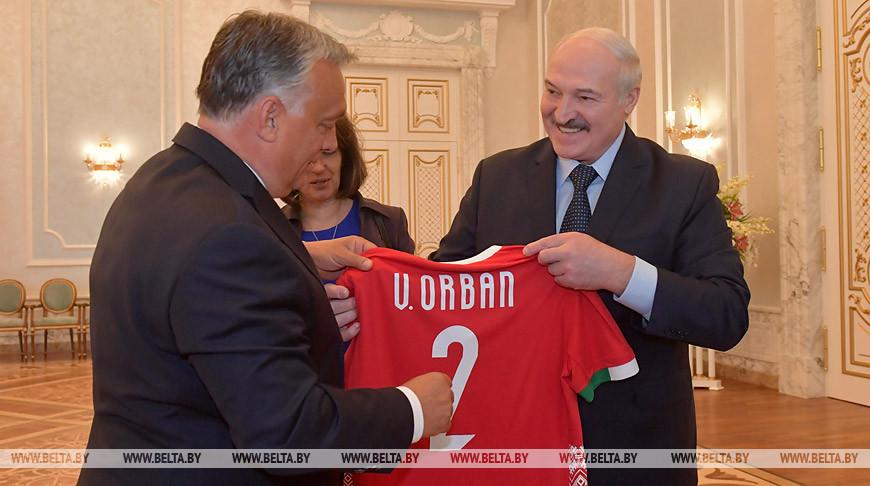
Both Aleksandr Lukashenko and Viktor Orban are the strongest irritants for the globalist faction in Eastern Europe today. At the same time, both politicians profess rather different views - Orban is quite right-wing, while the Belarusian Batka is clearly inclined to the left wing. But what brings Belarus and Hungary together is the fact that their current leaders, first of all, proceed from the national interests of their countries. Of course, as they are understood in Minsk and Budapest, not by the globalist elites of the United States or France. And these are strong leaders.
Aleksandr Lukashenko and Viktor Orbán may be liked by some and disliked by others. But for all their complexity and ambiguity, their phenomenon is that they know how to defend their countries in the face of enormous external pressure. They can structure their foreign policy in such a way that they remain a sovereign power in their own state. Which, in today's world of global dependence and tight control by the West and its corporations, is costly....
The views and opinions expressed by guest columnists in their op-eds may differ from and do not necessarily reflect the views of the editorial staff.








